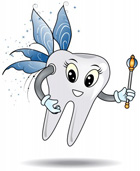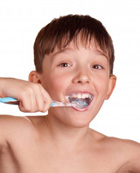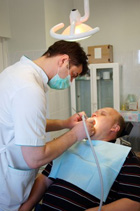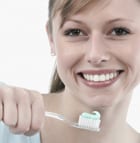 Oral cancer initially appears as a growth or sore in the mouth that doesn’t disappear naturally. It is most commonly found on the tongue, lips or lining of the mouth but can appear on any soft tissue in the oral cavity including the throat. It is a very serious disease and is life threatening if not treated early.
Oral cancer initially appears as a growth or sore in the mouth that doesn’t disappear naturally. It is most commonly found on the tongue, lips or lining of the mouth but can appear on any soft tissue in the oral cavity including the throat. It is a very serious disease and is life threatening if not treated early.
The most common symptoms of oral cancer include swellings or lumps, bumps or crusty patches on the soft areas inside the mouth. The spots are usually red or white and can also be velvety textured. It is also common for there to be unexplained bleeding in the mouth, numbness in the face and neck that can cause difficulty chewing or swallowing.
The people most at risk of oral cancer are men over the age of fifty, but smoking and alcohol also play a large part. Tobacco users are in fact fifty times more likely to contract oral cancer than non-smokers. Although it is important to remember that even the most abstemious of people are still at risk.
Your City of Leeds dentist has a crucial role to play in the diagnosis of oral cancer. It is very often the case that patients are not aware of any problem until the telltale signs are discovered by a dentist during a routine check up. This is just one of the many reasons why six-monthly check ups are incredibly important. Early diagnosis and treatment of oral cancer are vital for your chances of beating the disease. Patients who are treated sufficiently early stand a greater than 80% of surviving the disease.
If you have any unusual or suspicious patches in your mouth, make an appointment to see a City of Leeds dentist as soon as possible. They will be able to carry out a brush biopsy of the area to determine the exact cause of the problem.





 Maintaining good oral hygiene is about more than just brushing, yet so many of use rely entirely on brushing to keep our teeth clean and healthy. But we may be playing a dangerous game if we don’t pay enough attention to the other areas of the mouth.
Maintaining good oral hygiene is about more than just brushing, yet so many of use rely entirely on brushing to keep our teeth clean and healthy. But we may be playing a dangerous game if we don’t pay enough attention to the other areas of the mouth. Bad breath, also commonly called halitosis, is usually the result of poor dental hygiene but can also be the sign of wider health problems. It is frequently made worse by the foods you eat and other lifestyle habits such as smoking.
Bad breath, also commonly called halitosis, is usually the result of poor dental hygiene but can also be the sign of wider health problems. It is frequently made worse by the foods you eat and other lifestyle habits such as smoking. Having a tooth knocked out is not only unpleasant and painful at the time but can also cause many months of anxiety and further suffering, especially if it has ruined your cosmetic appearance. There are many health and dental health reasons to replace lost teeth as soon as possible but in many cases it is the appearance of the teeth that causes patients to worry the most.
Having a tooth knocked out is not only unpleasant and painful at the time but can also cause many months of anxiety and further suffering, especially if it has ruined your cosmetic appearance. There are many health and dental health reasons to replace lost teeth as soon as possible but in many cases it is the appearance of the teeth that causes patients to worry the most. Teeth can be missing for a number of reasons. They have either been knocked out as the result of some physical trauma or accident or perhaps they have just been lost to decay or other dental complication. Whatever the cause of missing teeth, it is very important, both aesthetically and for your health, to replace them as soon as possible.
Teeth can be missing for a number of reasons. They have either been knocked out as the result of some physical trauma or accident or perhaps they have just been lost to decay or other dental complication. Whatever the cause of missing teeth, it is very important, both aesthetically and for your health, to replace them as soon as possible. Dental emergencies can be very unpleasant and also extremely painful. Even at their best they are very inconvenient and stressful. The first thing you should do in any dental emergency is to make an appointment to see your dentist. They will be able to see you almost immediately if the problem is a genuine emergency. If it is out of hours, your dentist’s answering service will provide you with information about what to do and how to contact the on-call dentist.
Dental emergencies can be very unpleasant and also extremely painful. Even at their best they are very inconvenient and stressful. The first thing you should do in any dental emergency is to make an appointment to see your dentist. They will be able to see you almost immediately if the problem is a genuine emergency. If it is out of hours, your dentist’s answering service will provide you with information about what to do and how to contact the on-call dentist. For teeth that are cracked and broken beyond repair the solution might be to have a dental crown. This may sound like a serious procedure but it is really quite straightforward and could save you a lot of pain and discomfort.
For teeth that are cracked and broken beyond repair the solution might be to have a dental crown. This may sound like a serious procedure but it is really quite straightforward and could save you a lot of pain and discomfort. Tooth decay and gum disease affect children more than any other chronic infectious disease. It is therefore very important for parents to ensure that their children’s teeth are as clean and healthy as possible. The alternative is a lifetime of pain and discomfort caused by having bad teeth.
Tooth decay and gum disease affect children more than any other chronic infectious disease. It is therefore very important for parents to ensure that their children’s teeth are as clean and healthy as possible. The alternative is a lifetime of pain and discomfort caused by having bad teeth. A large part of your dental hygiene routine will be carried out at home with brushing and flossing. This is undoubtedly the most crucial part of keeping your teeth clean, as it is effective daily hygiene that keeps your teeth and gums free from plaque and bacteria. However, even the best brushing and flossing isn’t always enough to prevent gum disease and tooth decay.
A large part of your dental hygiene routine will be carried out at home with brushing and flossing. This is undoubtedly the most crucial part of keeping your teeth clean, as it is effective daily hygiene that keeps your teeth and gums free from plaque and bacteria. However, even the best brushing and flossing isn’t always enough to prevent gum disease and tooth decay. The most important part of dental care happens at home according to dentists. Regular check ups can help to prevent more serious dental concerns and ensure that your teeth are being kept as healthy as possible, but it is really effective brushing and flossing that are the most important defence against decay and disease. This is because when it comes to dentistry, prevention is much better than cure.
The most important part of dental care happens at home according to dentists. Regular check ups can help to prevent more serious dental concerns and ensure that your teeth are being kept as healthy as possible, but it is really effective brushing and flossing that are the most important defence against decay and disease. This is because when it comes to dentistry, prevention is much better than cure.

